Adoption Blu-ray Movie
HomeAdoption Blu-ray Movie 
ÖrökbefogadásCriterion | 1975 | 88 min | Not rated | Mar 08, 2022
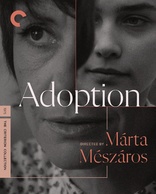
Price
List price:Amazon: $32.28 (Save 19%)
Third party: $32.28 (Save 19%)
Only 20 left in stock (more on the way).
Movie rating
7 | / 10 |
Blu-ray rating
| Users | 0.0 | |
| Reviewer | 3.5 | |
| Overall | 3.5 |
Overview
Adoption (1975)
Kata is a middle-aged factory worker who wants to have a child with her married lover. Anna is a teenage ward of the state determined to emancipate herself in order to marry her boyfriend. The bond that forms between the two speaks quietly but powerfully to the social and political forces that shape women's lives, as each navigates the realities of love, marriage, and motherhood in her quest for self-determination.
Starring: Katalin Berek, Gyöngyvér Vigh, Péter Fried, László Szabó, István SzőkeDirector: Márta Mészáros
| Foreign | Uncertain |
| Drama | Uncertain |
Specifications
Video
Video codec: MPEG-4 AVC
Video resolution: 1080p
Aspect ratio: 1.83:1
Original aspect ratio: 1.85:1
Audio
Hungarian: LPCM Mono
Subtitles
English
Discs
Blu-ray Disc
Single disc (1 BD)
Playback
Region A (locked)
Review
Rating summary
| Movie | 3.5 | |
| Video | 5.0 | |
| Audio | 5.0 | |
| Extras | 3.5 | |
| Overall | 3.5 |
Adoption Blu-ray Movie Review
Reviewed by Dr. Svet Atanasov April 15, 2022Marta Meszaros' "Adoption" (1975) arrives on Blu-ray courtesy of Criterion. The supplemental features on the disc include recent program with the director; new video essay by critic Catherine Portuges; short film; archival documentary; and more. In Hungarian, with optional English subtitles for the main feature. Region-A "locked".
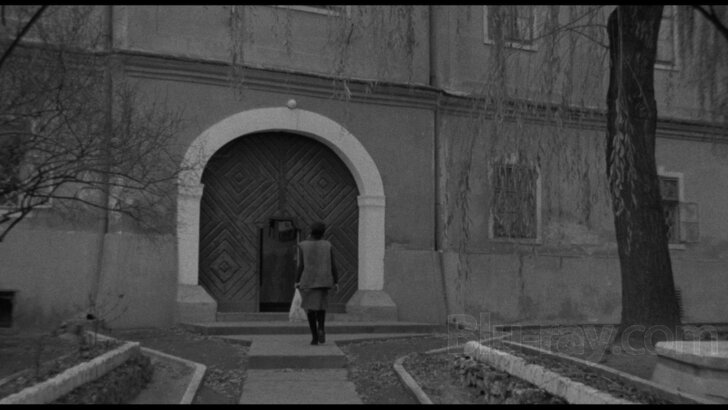
Marta Meszaros’ Adoption is one of those very particular Eastern European time capsules that people in the West could not have properly deconstructed even if they understood perfectly the nature of the drama it depicts. The title of the film is appropriately misleading too, which is why older reviews that were written in the West after its unexpected success at the Berlinale completely missed what it conveyed as well. (In a new program that is included on this release, it is rightfully pointed out that the film’s critical reception in its native Hungary and in the West could not have been any more different. However, the commentator misses the real reason behind the disconnect as well. For example, a viewer from the former Soviet satellites could not have compared Katalin Berek to Annie Girardot because he would not have seen a legit connection between the two. What about the minor visual similarities? At the time when Adoption was released only a very small group of privileged viewers would have been fortunate to have seen most of the latest French films with Girardot. And even if they would have recognized the visual similarities between the two actresses, they still would have concluded that the characters the two had played were incompatible because they emerged from drastically different realities).
The main character, Kata (Berek), is a widow in her early forties who lives alone in a sleepy provincial town somewhere in the heart of communist Hungary. She has a part-time lover (Laszlo Szabo) who genuinely cares about her, but is married and does not intend to leave his wife. They both work in the same factory and barely make ends meet.
When Kata confesses to her lover that she wants to have his child, their secret relationship becomes very complicated. Around the same time Kata meets and befriends Anna (Gyongyver Vigh), a teenage girl who has been abandoned by her family and is being raised in a children’s home on the outskirts of town, and allows her to begin weeing her visiting boyfriend at her place. When Kata learns from Anna that she intends to marry her boyfriend, with or without the approval of her parents, she vows to help her. The negotiations with Anna’s supervisor and her parents then give Kata the confidence to move away from her lover and adopt the child she wants.
The focus of attention is on the drama surrounding Kata’s struggle to reset her life, but the real strength and value of this film emerge from its ability to preserve rather well a much bigger picture that was missed in the West. Here’s a simple description of it:
Despite their age difference and the fact that they are constantly in the company of people that are supposedly trying to help them, Kata and Anna are effectively transformed into social orphans by a tightly controlled communist society that has taken control of their personal freedoms. Kata can choose to be a mother but not before she is questioned by the medical authorities that would then promptly report to the local and state authorities, and Anna can choose to marry her boyfriend but only if her decision is approved by her supervisor and she is released by her parents to move on with her life. This is the exact reason the two women connect as well -- both are considering very risky, possibly self-destructive moves to ensure that true love and happiness have permanent presence in their lives. So, perhaps one could argue that the film is about an adoption, but it would be about the process of reintegrating the two women in a communist society with a long history of quietly expunging their kind. This is why the film did not do particularly well in Hungary and the former Soviet Bloc. Indeed, it captures the actual reality of the two women, but instead of denouncing it chooses to safely exit it while resolving their dilemmas. (In the former Soviet Bloc, women like Kata and Anna would have been doomed to spend the rest of their lives in maddening, usually destructive misery. Indeed, divorced and rebellious young women were extremely undesirable social elements, so Kata would have ended up dying as a lonely widow, while Anna, who is described in the film as a rebellious prostitute, most likely would have been transferred to a correctional camp, and after trying to unsuccessfully regain her freedom would have been permanently incarcerated or killed in a ‘tragic encounter’ with the authorities. The interior ministries of the communist states actually maintained impeccably organized secret archives with detailed records of such women which were used by local authorities to determine their fate).
Berek and Vigh’s performances are somewhat inconsistent, so past claims that they rank amongst the very best in the annals of post-war Eastern European cinema ought to be taken with a grain of salt. Meszaros’ direction can be quite uneven as well.
Adoption Blu-ray Movie, Video Quality 
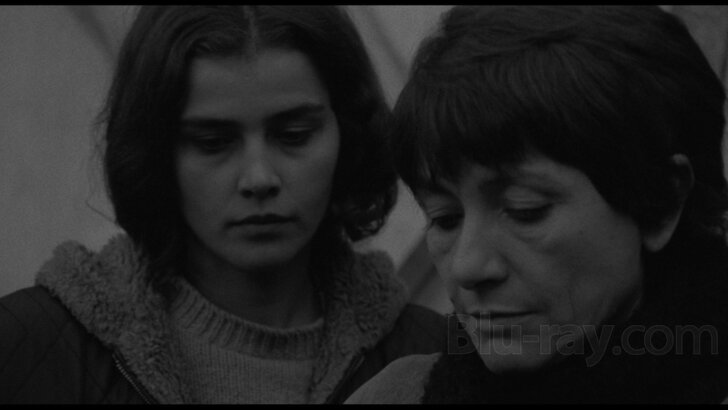
Presented in an aspect ratio of 1.83:1, encoded with MPEG-4 AVC and granted a 1080p transfer, Adoption arrives on Blu-ray courtesy of Criterion.
The following text appears inside the booklet that is provided with this Blu-ray release:
"This new 4K digital restoration was undertaken by the National Film Institute Hungary-Film Archive, in collaboration with the NFI-Filmlab and the Hungarian Society of Cinematographers, from the 35mm original camera negative. The original monaural soundtrack was remastered by the Criterion Collection from the 35mm magnetic track."
I think that the film looks wonderful after the 4K makeover. It has a very strong organic appearance and when projected it just looks like an older film that has been touched by time. I particularly liked the grading job because it makes it possible for all sorts of darker nuances to look really, really impressive without creating the impression that they might have been adjusted by digital tools. Needless to say, if seen in native 4K this film should be quite the visual stunner. Image stability is excellent. There are no specks, debris, cuts, blemishes, or other distracting imperfections. (Note: This is a Region-A "locked" Blu-ray release. Therefore, you must have a native Region-A or Region-Free player in order to access its content).
Adoption Blu-ray Movie, Audio Quality 
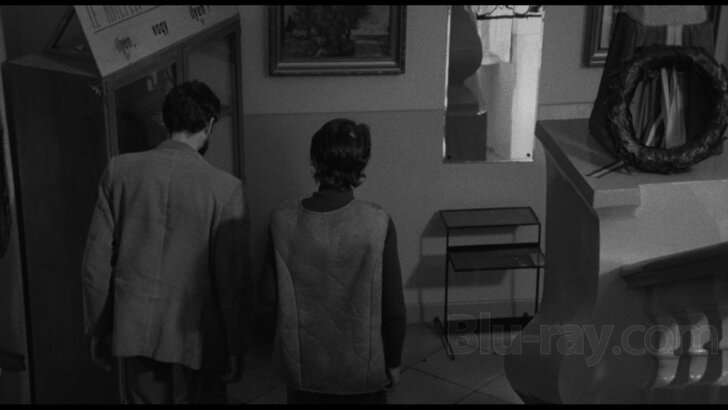
There is only one standard audio track on Hungarian LPCM 1.0. Optional English subtitles are provided for the main feature.
The film does not have a prominent soundtrack, which means that the overall range of dynamic contrasts is very limited. The dialog is very clear, clean, and remains stable throughout the entire film. The only minor fluctuations emerge during the factory and wedding footage, but obviously they are inherited. The English translation is excellent.
Adoption Blu-ray Movie, Special Features and Extras 
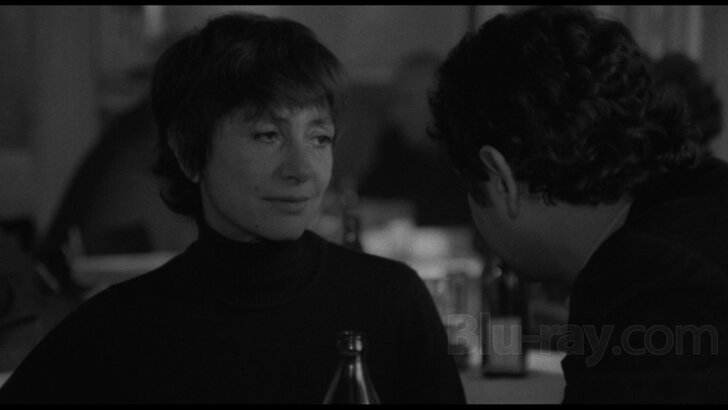
- Trailer - presented here is a recent trailer for the 4K restoration of Adoption. In Hungarian, with English text and subtitles. (2 min).
- The World of Marta Meszaros - this new video essay takes a closer look at the life and work of Marta Meszaros. It was produced by critic Catherine Portuges in 2021. In English, not subtitled. (20 min).
- Marta Meszaros - Portrait of the Hungarian Film Director - this archival documentary focuses on Marta Meszaros' working methods and evolution as a director. It was shot by Katja Raganelli and Konrad Wickler during the production of Meszaros' ninth feature, On the Move, in 1978. In German and Hungarian, with English subtitles. (57 min).
- Blow-Ball - Marta Meszaros directed this short film in 1964. It is a bout a young boy who tries hard but struggles to meet the expectations of his parents. Restored in 4K on behalf of the National Film Institute Hungary. In Hungarian, with English subtitles. (22 min).
- Berlin Reflections - in this recent program, Marta Meszaros recalls the era in which Adoption was shot as well as its critical reception in Hungary and abroad. The program was produced by the National Film Institute Hungary in 2019. In Hungarian, with English subtitles. (10 min).
- Booklet - 20-page illustrated booklet featuring Elena Gorfinkel's essay "Wayward Faces" as well as technical credits.
Adoption Blu-ray Movie, Overall Score and Recommendation 
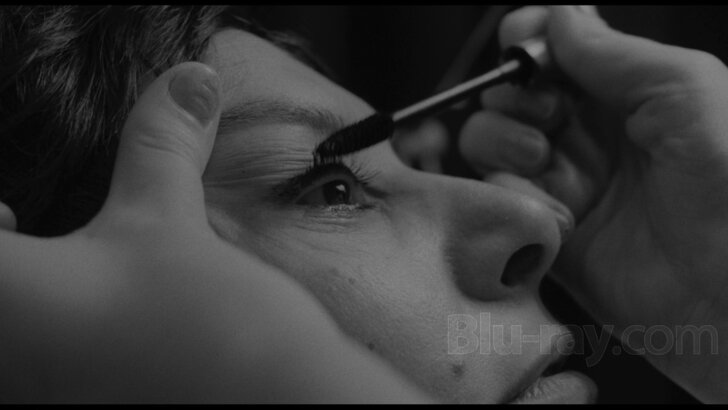
The crucial point Adoption fails to make perfectly clear is that in the former Soviet Bloc women like Kata and Anna were almost never given a second chance to reintegrate themselves in society and pursue happiness. The lucky exceptions were usually close relatives, former wives and daughters of high-ranking Party members that had abused their limited freedoms but could not be relocated to impossible to find on the map provincial towns and state correctional facilities, or just permanently removed from society. For ordinary women like Kata and Anna, the interior ministries of the communist states maintained impeccably organized secret archives with detailed records which were made available to local authorities to determine their fate. I still think that Adoption is a good time capsule, but it is pretty obvious that in the West it is seen as a completely different type of film. Criterion's recent Blu-ray release is sourced from an outstanding 4K master that was prepared in Hungary. RECOMMENDED.
Similar titles
Similar titles you might also like

The Boys from Fengkuei
風櫃來的人 / Feng gui lai de ren / All the Youthful Days
1983

Devi
The Goddess
1960

Documenteur
1981

A Hen in the Wind
風の中の牝鶏
1948

Peppermint Candy
박하사탕 | 4K Restoration
1999

There Was a Father
父ありき
1942

Elles
2011

Hidden Pleasures
Los placeres ocultos
1977

El Planeta
2020

How to Be Loved
Slipcover in Original Pressing
1963

A Tale of Sorrow and Sadness
Limited Edition
1977

Aquarius
2016

That Day, on the Beach
海灘的一天
1983

Julieta
2016

Baal
1970

Goto, Isle of Love
Goto, l'île d'amour
1969

Murmur of the Heart
Le souffle au coeur
1971

Diary of a Country Priest
Journal d'un curé de campagne
1951

A Sun-Tribe Myth From the Bakumatsu Era
Bakumatsu Taiyo-Den
1957

Early Spring
早春
1956